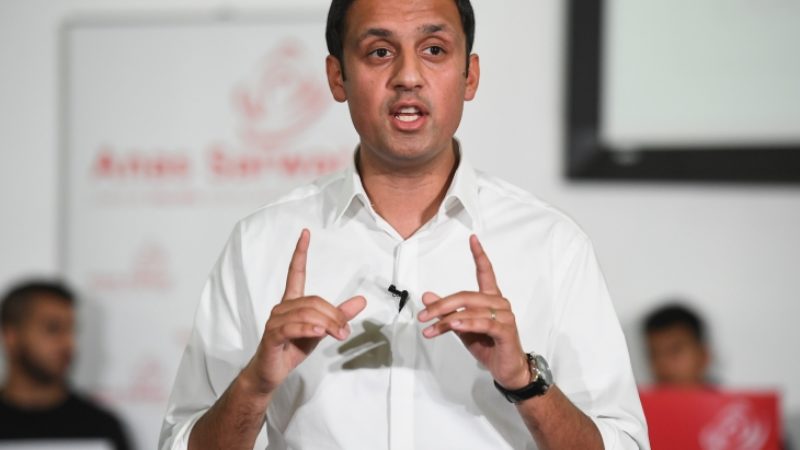
Scottish Labour has unveiled an ambitious plan for tackling unemployment in Scotland that would offer a job guarantee to everyone under 25 without a job, every long-term jobless person and every jobless disabled person.
Billed as “the biggest job creation scheme in the history of devolution”, the opposition party announced the policy as part of a £1.2bn economic recovery plan that aims to help Scotland recover from the impact of coronavirus.
With the new offer, Scottish Labour hopes to ensure that “every young person and Scot who has struggled to find work is guaranteed a job”, and it comes alongside a ‘skills benefit’ policy to enable those furloughed or out-of-work to retrain.
The £500m ‘jobs for recovery’ guarantee scheme includes six months of employment – and training – administrated through a national platform, according to the party, providing essential training to those needing to “restart their careers”.
“Scotland is facing a national jobs emergency – and without urgent ambitious action we could see hundreds of thousands of people facing a future out of work,” new leader Anas Sarwar said as the party revealed the new policy.
“It doesn’t have to be that way. The people of Scotland deserve a brighter future, which is why stimulating the economy and creating jobs is at the heart of Scottish Labour’s national recovery plan.”
The jobs in the guarantee policy would not risk redundancies as they would be in addition to current supply, Scottish Labour says. People would apply nationally with a sector preference and be matched with local opportunities.
The party has predicted that businesses collapsing, job losses and redundancies, particularly in the hard-hit accommodation, arts and physical retail sectors, are likely as the Covid furlough scheme comes to an end.
It is also keen to address structural economic changes accelerated by the pandemic, such as increased automation and e-commerce, plus post-Brexit challenges. Labour believes a just transition to a low-carbon economy is needed.
Sarwar added: “We have just months to act, but with ambitious action we can confront this emergency and tackle the emerging jobs crisis.
“This is a guarantee for every young person or unemployed person to have a job or and for everyone who needs it to get access to paid training.
“It is the biggest job creation scheme in the history of devolution – but it is the scale of ambition that is necessary to battle the crisis.
“The cost of doing nothing is even greater – mass unemployment would fall hardest on young Scots, potentially leaving up to 100,000 people out of work.
“Neither Nicola Sturgeon nor Boris Johnson has the ambition to deliver what is needed – and Scotland deserves better that they can offer. Scottish Labour will put national recovery before all else and will focus on what unites us, not what divides us.”
Scottish Labour has also pledged to introduce a national work experience scheme for school age and further education age students. This would see financial barriers to completion removed via subsidies requiring a work experience component.
The party says it would “reinvigorate apprenticeships across Scotland” by targeting 5,000 new places in 2021-2022. These would be subsidised at minimum wage for the first 12 months where employers contribute.
To “kickstart ‘kickstart'”, the UK government’s youth unemployment scheme, Scottish Labour would provide additional funding with a further six-month subsidy of wages at minimum wage and have it run until at least the summer of 2022.
The party has promised to ensure no publicly procured contract uses workers on zero-hour contracts and to establish a ‘Better Business Scotland’ certification scheme that would ensure businesses meet certain criteria.
Its total jobs recovery plan is estimated to cost between up to £1.35bn, including the Scottish skills initiative (around £300m at first), work experience (£30m), ‘kickstart’ support (£160m initially), apprenticeships (£50m) and jobs guarantee (£500m).
Scottish Tory leader Douglas Ross has also talked about a “looming jobs crisis” in the nation today. He favours lifting some coronavirus restrictions early – reopening cinemas, for example – on April 26th not May 17th.
People across Scotland will vote on May 6th to elect 129 Members of the Scottish Parliament (MSPs), who consider and pass legislation on health, education and transport in the devolved nation, as well as on some tax and social security issues.




More from LabourList
‘I was wrong on the doorstep in Gorton and Denton. I, and all of us, need to listen properly’
‘Why solidarity with Ukraine still matters’
‘Ukraine is Europe’s frontier – and Labour must stay resolute in its defence’